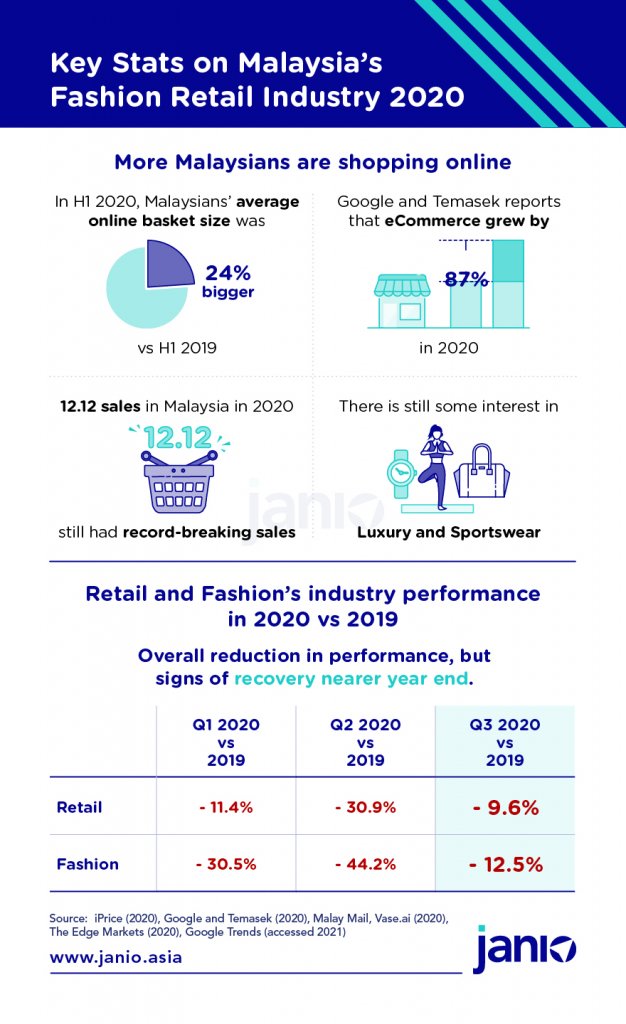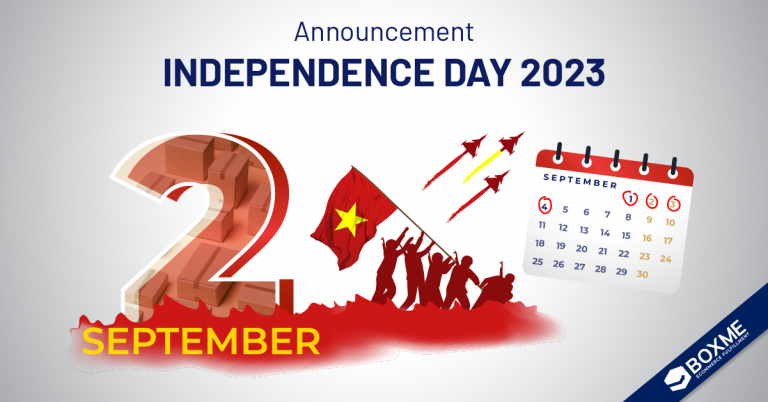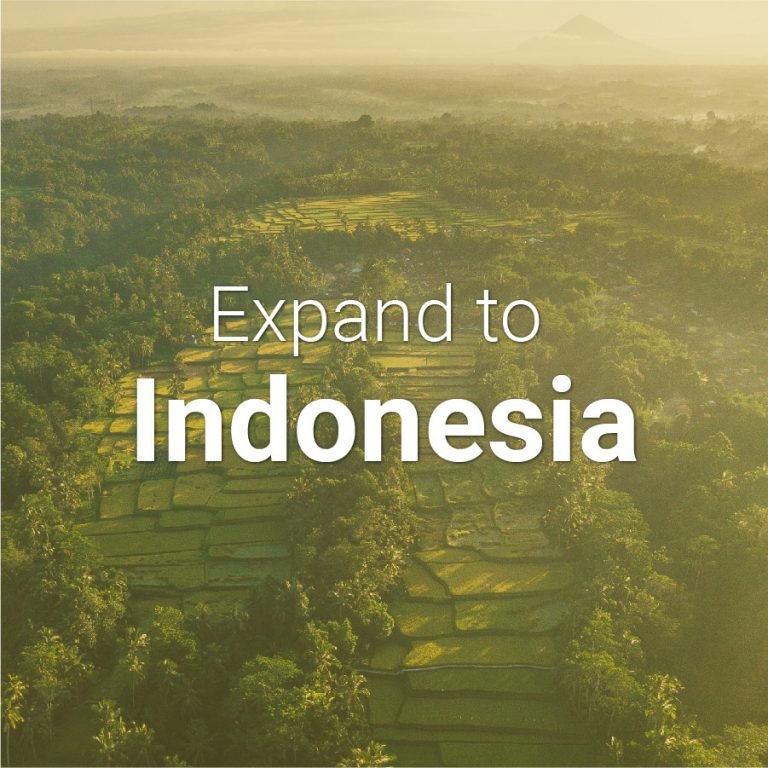The COVID-19 pandemic situation in 2020 forced many Malaysians and businesses in Malaysia to learn and to adapt to new norms. From spending more time at home to discovering new hobbies, Malaysians did well at helping prevent the spread of the coronavirus.
Businesses in Malaysia had to adopt to new rules and SOPs set by the government during the Movement Control Order (MCO) in finding ways to be more adaptable such as implementing remote working practices (better known as ‘working from home’), having flexible working hours and experimenting with strategies to make up for the lack of foot traffic at brick-and-mortar stores.
Fashion Demand in Malaysia During MCO
Over the course of the COVID-19 pandemic situation, the fashion industry in Malaysia was particularly impacted and suffered considerable losses in revenue. As Malaysians stayed at home during the MCO, the demand for fashion apparel decreased due to the inessential need to dress up while at the comfort of their own homes. However, that does not mean that Malaysians had completely stopped buying fashion and apparel.
Zalora reports that Malaysians of the younger age group are still shopping online for clothes, while periods like Ramandan, the year end sales and Lunar New Year still showed spikes in fashion demand. Shopee noted that fashion apparel was still among the top purchased items during their 11.11 Big Sale, Sale and 2.2 CNY Sale, and Commerce.Asia reported a surprising spike in demand for women’s lingerie during the first MCO in Malaysia.
However, most Malaysians still prefer to shop in physical stores as they will be able to touch and feel the material of the apparel, as well as try them on to see if the article of clothing will fit them to be more certain that they are getting the best out of what they are paying for.

Notable Trends
Among the top purchased fashion apparel were luxury brands. iPrice Group noted an increase of search traffic for luxury apparel in Southeast Asia after the COVID-19 outbreak compared to before. The increase of interest was found in brands like Chanel (274%), Saint Laurent (306%), Rolex (306%), and Louis Vuitton (555%).
iPrice also included sportswear giants like Nike (605%) and Adidas (577%) in their luxury brand interest research and found incredible jumps in search interest in Southeast Asia. A search on Google Trends back this up by showing increased searches in Malaysia for yoga mats, dumbbells, kettlebells and resistance bands among other gym related equipment, which suggests that more Malaysians were exercising and working out at home.
Younger Malaysians were still shopping for fashion even when the MCO was in full effect during early Q2. Based on data from consumer research firm Vase.ai, 61% of millennials aged between 24 – 34 were still spending on clothes during the last week of April 2020.
Special Occasions and Holiday Periods
Malaysia is a multiracial country with several cultural and religious holidays and festivals throughout a year. Occasions like Lunar New Year (known as Chinese New Year in Malaysia), Deepavali, Hari Raya Aidilfitri and Christmas are when many Malaysians go on holidays to visit and spend time with friends and family.
During the weeks leading up to Lunar New Year and during Ramadan period, families enjoy buying matching festive clothes for the whole family. Malaysian Chinese families during the Lunar New Year would purchase bright coloured clothes, often with the matching Chinese zodiac sign attributed to that year. Malay families during the Ramadan period on the other hand would purchase modest apparel with traditional motifs that do not reveal too much of one’s skin as modesty is an Islamic virtue. Malaysia makes a primary market for modest fashion as Islam is the primary religion and makes up the majority of the population.
Despite social distancing measures putting a stop to home visits, occasions like Ramadan 2020 and Lunar New Year 2021 still saw a spiking demand for fashion. In a report by Omnilytics, demand for fashion was initially weak in the early days of Ramadan last year and only began improving nearer the end of Ramadan. This was driven by increasing discounts by online merchants throughout Ramadan to boost sales. The global fashion market insights platform also reported that Zalora’s Raya collection recorded over 20% uplift in sales in both Malaysia and Indonesia.
In Q4 2020, Malaysia saw good sales volumes during the 11.11 Single Day sale and 12.12 year end sale. Both top e-commerce marketplaces Shopee and Lazada broke sales records as more Malaysians have adapted to online shopping during the MCO. While fashion and clothing were not the main items being purchased, sports and outdoor products sold well on Shopee and Lazada indicating a growing demand for athleisure and sportswear among Malaysians.
> Read more: Trends and Insights for Chinese New Year 2021 in Malaysia
E-commerce and Omnichannel Retail
The shift of more businesses from brick-and-mortar stores to online platforms, paired with the change of shopping habits over the course of the pandemic situation does not reflect on the end of physical retail as initially thought by many. Malaysians still have a preference for shopping for fashion and apparel at brick-and-mortar as they are able to touch and feel the items before committing to a purchase.
In a survey about Malaysian fashion and shopping behaviour during COVID-19 conducted by Janio, nearly half of shoppers surveyed mentioned that they prefer shopping at physical stores for that reason, and some were still skeptical about receiving the right item if they shopped online. At the same time, many are becoming accepting and trusting of online shopping in order to stay safe, as well as for the cost-saving and convenience of e-commerce.
This behaviour suggests the possibility for omnichannel retail to play a role in bridging the gap between physical and online shopping experiences. It is reported that shoppers on FashionValet would search for an item’s availability or size before going to a physical outlet to try it and finalise their purchase.
> Read more: Malaysia’s Ecommerce Economy Thrives During COVID-19
Afterword
Despite lockdowns and restrictions during the COVID-19 pandemic, the fashion industry still sees demand among young Malaysians and continues to push forward in the e-commerce sector. Festive related apparel, sportswear and athleisure is predicted to continue to be the top purchased items. With Malaysians likely to continue staying at home to help curb the spread of the infectious virus, improving engagement with customers online via e-commerce marketplace and social media should be a safe investment and wise step for brands and businesses.
More Reading
> Shopee Malaysia Rolls Out Next-Day Delivery Service










